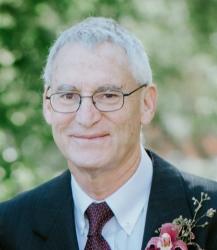It’s a story too good to be lost in the annals of history.
Depending on your spiritual bent, you may have been either thrilled or turned off by University of Connecticut women’s basketball star Paige Bueckers talking about her Christian faith in post-game interviews on her way to the semi-finals of the NCAA tournament last season. “I’m a living testimony. I give all glory to God, “she told ESPN. “He works in mysterious ways. Last year [after injury], I prayed to be back at this stage. He sent me trials and tribulations, but it was to build my character. It was to test my faith to see if I was a believer. But I just kept on believing. I did all I could, so God could do all I can’t.”
Some probably feel, as Beneatha Younger put it in Lorraine Hansberry’s play, A Raisin in the Sun, “I’m just tired of hearing about God all the time. What has He got to do with anything? . . . I get so tired of Him getting the credit for things the human race achieves through its effort. Now, there is no God. There’s only man. And it’s he who makes miracles.”
The media and the public are now accustomed to hearing athletes thank God for the abilities he has given them. But that wasn’t always the case. In baseball in the 1950s and 1960s, it was extremely rare to hear such pronouncements from athletes. Then, in the 1970s in San Francisco, one of the great culture clashes between religious athletes, the media, and the fan base erupted over a group of born-again ballplayers on the Giants who became known as the God Squad.
Giants’ relief pitcher Gary Lavelle became a born-again Christian in the winter of 1976. When he returned to the club the following year, he gradually and quietly began to share his faith with his teammates when they showed an interest. Several, including Bob Knepper, Jack Clark, Rob Andrews, and Randy Moffitt (brother of tennis great Billie Jean King), came to faith, and by the 1978 season, there were eight or nine professing Christians on the team.

Gary Lavelle (photo, SF Giants)
The Giants, who had suffered several losing seasons, came to life that year and led the National League West for much of the season. However, they faded in a September swoon and finished third. In post-game interviews, the players frequently thanked God for the ability he gave them, and the press did not object.
But when the Giants’ fortunes faded on the field in 1979, the media quickly blamed the born-again players, claiming their newfound faith had made them passive. The press derisively referred to them as the God Squad. The cornerstone of that accusation was a quote attributed to pitcher Knepper, who supposedly told manager Dave Bristol it was “God’s will” when he yielded a home run that lost a game. Bristol, Knepper, and his Christian teammates have consistently denied the quote. But the false story continued to hound them for years.
The media was merciless at times. San Francisco Chronicle columnist Glenn Dickey wrote, “It may be that the Giants will have to trade one or two of the most obvious born-agains on the club to break up the clique. At the very least, their lockers should be separated in the clubhouse.”
Another prominent Chronicle sports columnist, Lowell Cohn, told me recently that he disagrees with Dickey on that score. However, Cohn, known for his biting satire, penned one of his most provocative pieces, “Can Satan Save the Giants?” in which he recommended that one of the Giants sell his soul to the devil since God didn’t seem to be helping the team too much!
Not only did the media blame the God Squad for losing, but it also alleged that the Christian athletes caused division in the clubhouse and got two managers fired. These false claims spread to the national media, where prestigious columnists Peter Gammons of The Boston Globe and Dick Young of the New York Daily News repeated them. One of the more ridiculous accusations was that the Giants had two team buses to take players to the field, one for the God Squad and another for the others!

Mike Ivie (photo, SF Giants)
Mike Ivie, one of the God Squadders, returned to the club from a stint of mental exhaustion and sounded much like Paige Bueckers, who had made a comeback from physical injury. “He’ll put you through trials and tribulations, and He’ll use every resource to help you find happiness in your heart,” said Ivie. “It would have been twice as hard for me to return if I hadn’t believed in the Lord.”
Ivie and his teammates commonly made such pronouncements in a liberal San Francisco atmosphere and era that was not conducive to talking about faith. Cohn felt the tension and, in his memoirs, made this fascinating statement: “Until that day, I believed I was covering a baseball team. I was wrong. I had wandered into a deep religious debate that defined the Giants then.”
The God Squadders were spiritual pioneers who endured the brunt of the media’s attacks. They paved the way for Paige Bueckers and other Christian athletes to speak boldly about their faith.
____________














